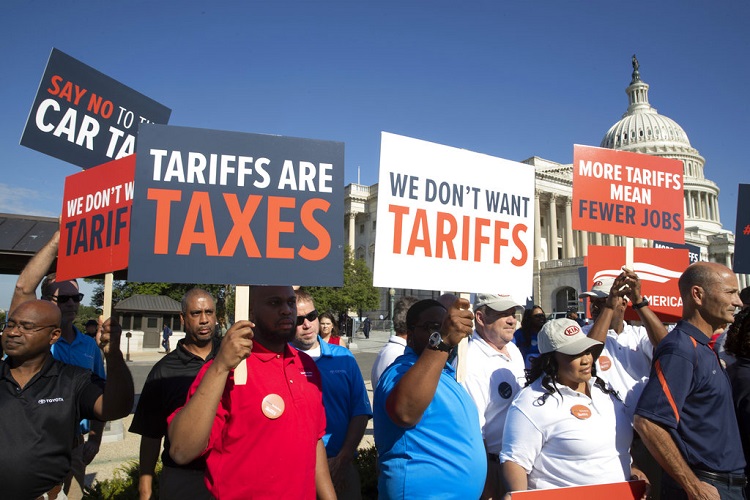Welcome to Our Research Archive
Search and filter by content type, issue area, author, and keyword
- ✕ Clear Filter
- Angela Rachidi (9)
- Beth Akers (6)
- Brent Orrell (13)
- Bruce D. Meyer (3)
- Daniel A. Cox (3)
- Edward J. Pinto (8)
- Edward L. Glaeser (1)
- Frederick M. Hess (1)
- Howard Husock (6)
- Ian Rowe (3)
- John Bailey (2)
- Joseph Fuller (6)
- Kevin Corinth (7)
- Kyle Pomerleau (1)
- marie cohen (1)
- Mark Schneider (2)
- Mason M. Bishop (1)
- Matt Weidinger (5)
- Max Eden (1)
- Michael Brickman (1)
- Michael R. Strain (5)
- Naomi Schaefer Riley (3)
- Nat Malkus (6)
- Nicholas Eberstadt (1)
- Paul Ryan (1)
- Preston Cooper (6)
- R. Glenn Hubbard (1)
- Richard Burkhauser (2)
- Richard V. Burkhauser (1)
- Robert Doar (1)
- Robert Pondiscio (2)
- Ryan Streeter (2)
- Samuel J. Abrams (1)
- Scott Winship (10)
- Stan Veuger (3)
- Timothy P. Carney (1)
- Tobias Peter (11)
- W. Bradford Wilcox (16)
- Yuval Levin (1)

August 27, 2025
In Pursuit: Marriage, Motherhood, And Women’s Well-Being
Marriage and fertility rates have reached all-time lows in the U.S. in recent years, as fewer people marry or have children. These trends are likely to continue in the future. In 2023, only 72% of 18-year-old women in the U.S. said they were likely to have children, down from 85% in the late 2000s.1 Though…

July 30, 2025
The Expertise Upheaval
How Generative AI’s Impact on Learning Curves Will Reshape the Workplace Generative AI (GenAI) is set to reshape the workforce, redefining career pathways and talent development. However, despite public anxieties about mass displacement, GenAI’s biggest impacts won’t be on the number of jobs so much as on the level of expertise required to do them….

July 16, 2025
An Analysis of the One Big Beautiful Bill Act’s Effect on Student Loans
Key Points Introduction At the beginning of July, President Donald Trump signed into law the One Big Beautiful Bill Act (OBBB), a comprehensive package of reforms to taxes and government spending.1 While the package touches on myriad policy areas, it includes a comprehensive set of reforms to the federal student loan program. These represent some of…

June 26, 2025
Does Building Light-Touch Density Housing Lower Single-Family Home Values? Evidence from Seattle, WA and Charlotte, NC
Summary: Opponents of Light-touch Density (LTD) infill argue that it will lead to outright home price declines or, at the very least, slower home price appreciation (HPA). However, evidence from Charlotte and Seattle shows that the construction of LTD housing—such as duplexes and townhomes—does not adversely impact HPA of single-family detached (SFD) homes in the…

June 25, 2025
De-Skilling the Knowledge Economy
Key Points Introduction As David Veldran and I examined in our 2024 report, The Age of Uncertainty—and Opportunity: Work in the Age of AI, forecasts of how artificial intelligence will affect jobs and skills are remarkably uneven and often contradictory.1 This is less a matter of poor methodologies or lack of investigation than it is…

June 24, 2025
Public Housing and Rental Subsidies
Since the 1930s, the federal government has subsidized local housing projects aimed at uplifting the poor. The specific policies have evolved, but the theory has been that federal aid is needed because the states cannot solve their own housing problems and private markets fail to invest in affordable housing. Federal housing efforts are led by…

June 18, 2025
The (Non) Effect of Tariffs on Manufacturing Employment
This paper is a chapter in the volume The Economic Consequences of the Second Trump Administration: A Preliminary Assessment, published by The Center for Economic and Policy Research. Introduction President Trump has stated many goals to justify his trade war. He has argued that tariffs on imports produce leverage that the US can use to reduce…

June 16, 2025
Accountable for Outcomes: We Need Evidence-Based Funding Models
Key Points Introduction Amid escalating college costs, mounting student debt, and rising college graduate underemployment, students of all backgrounds increasingly question college as a path to economic mobility. This shift has sparked interest in alternatives to college—from high school career and technical education (CTE) programs to short-term adult training courses proposed for Pell Grant funding…

June 13, 2025
Good Fathers, Flourishing Kids: The Importance of Fatherhood in Virginia
Children in Virginia are more likely to flourish when their fathers are engaged and/or present. This is one of the conclusions from Good Fathers, Flourishing Kids: The Importance of Fatherhood in Virginia, a new report from an intellectually diverse group of scholars at the University of Virginia, the American Enterprise Institute, the American Institute for Boys and Men,…

June 12, 2025
Lingering Absence in Public Schools: Tracking Post-Pandemic Chronic Absenteeism into 2024
Key Points Introduction It has been over five years since the US shut down for COVID, and in many ways, the country has moved past the pandemic. For US schools, however, the pandemic’s toll has not passed so quickly. Student academic achievement remains depressed, and chronic absenteeism continues to hover substantially above the pre-pandemic baseline….